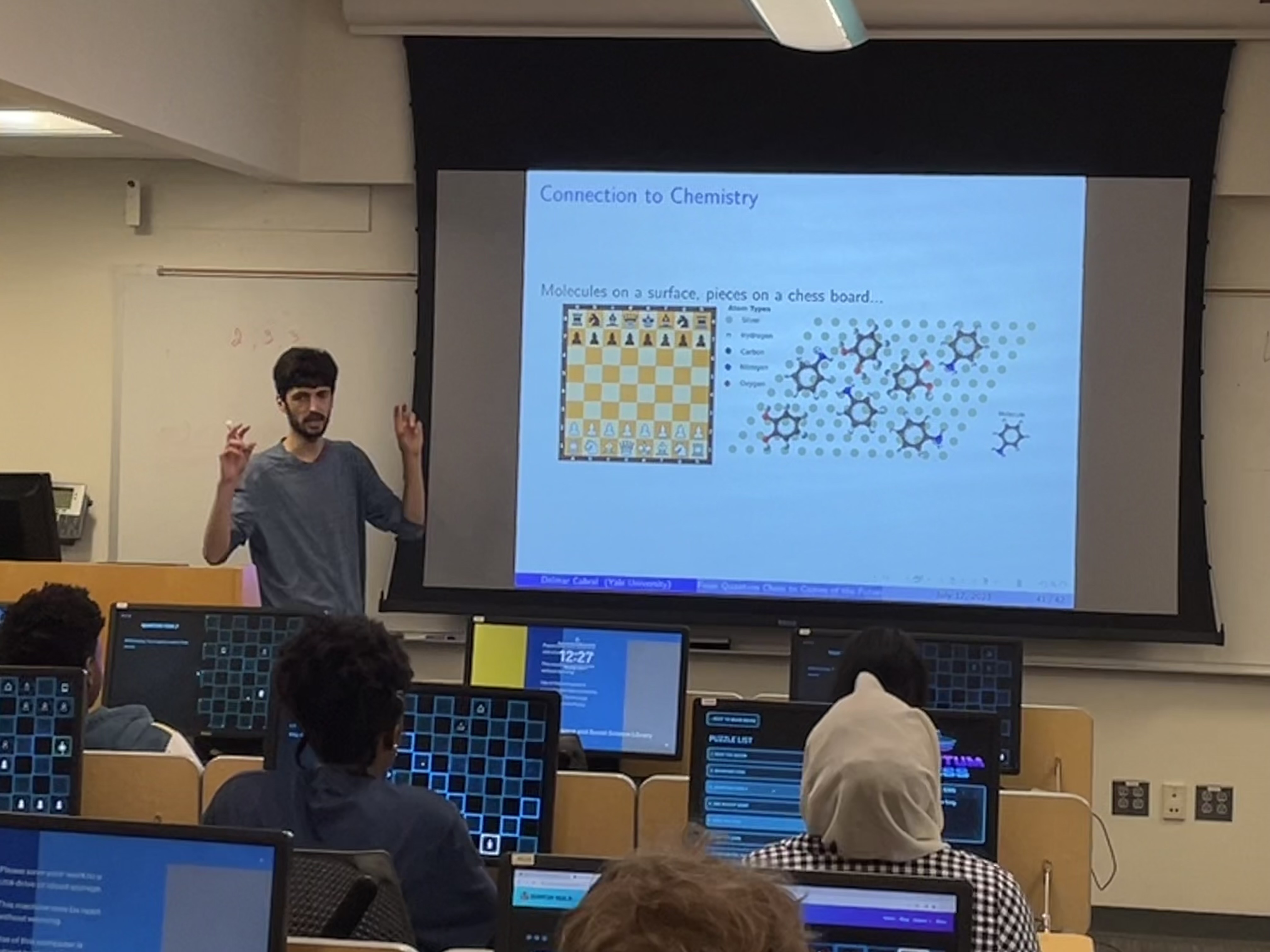
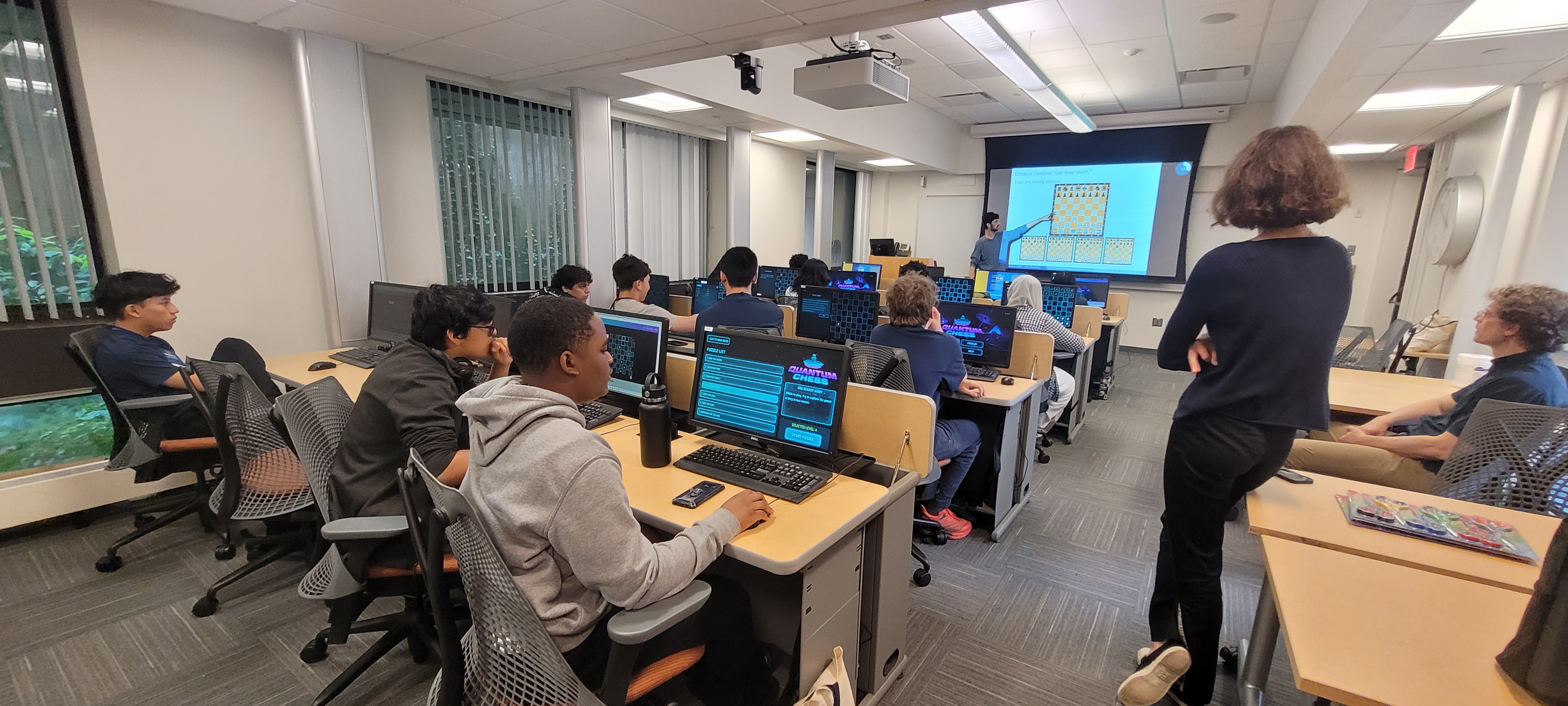
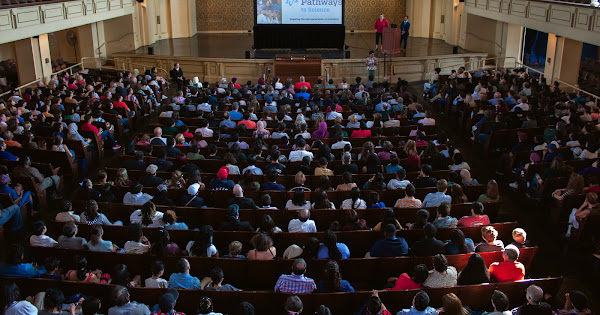
Quantum Chess Workshop at Yale Pathways to Science Summer Scholars Program
Every year Yale University invites over 1,900 local students from the 6th-12th grades to join their Pathways to Science program. As a Pathways to Science Scholar, these students join the STEM community at Yale University, gaining access to academic lectures, demonstrations, laboratory visits, and even some research opportunities. The Pathways program offers over 150 different programs and events from which the Scholars get to choose, cultivating academic inquiries and fostering growth. During the 2023 and 2024 Pathways programs, the Center for Quantum Dynamics on Modular Quantum Devices held a workshops using quantum-based games (Quantum Chess) to introduce high schoolers to quantum information science. To learn more about similar activities and about how to apply to the Pathways program, click here.
Quantum Game-based Workshops in Lehigh Valley High Schools
We’ve developed a 90-minute, after-school workshop using quantum games for high school students across the Lehigh Valley. The overall goal of the quantum game-based workshop is to enable high school students to develop an intuition for the particularly “non-intuitive” aspects of quantum mechanics, such as superposition and measurement. We hypothesize that providing students the opportunity to become familiar with quantum mechanics concepts in secondary school will motivate them to persist in the field of quantum information science and engineering (QISE) in the future.
The workshop is facilitated by a team of undergraduate & graduate students, post-docs, and faculty from Lafayette College, Yale University, Dartmouth University, the University of Connecticut, the University of Michigan, and the University of California, Los Angeles. Our team is researching the workshop’s impact on high school students’ intuition for quantum mechanical concepts and their attitude towards QISE.
The specific aims of the study are to:
1. Investigate the effect of interactions with quantum-based games, e.g., quantum chess, on high school students’ understanding of quantum phenomena, such as superposition and probabilistic measurement outcomes. Knowledge gained along this aim will contribute to the development of a theoretical framework for student conceptual understanding in quantum mechanics at the secondary level.
2. Evaluate student perceptions of how the various aspects of the workshop (lecture, demonstration, interactive games and puzzles, etc.) contribute to their understanding of “non-intuitive” aspects of quantum mechanics, such as superposition and measurement. Knowledge gained along this aim will enable QISE educators to evaluate and improve methods for quantum mechanics instruction at the secondary level.
3. Evaluate student perceptions of how their engagement with quantum-based games in secondary school influences their future program of study and/or career pathways. Knowledge gained along this aim will provide further insights on the impact of incorporating quantum mechanics into science education at the secondary level.
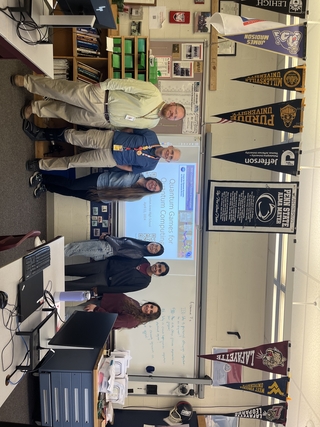
Quantum Games for Quantum Computing held at Easton Area High School
Quantum Computing Activities for High Schools in the Chicago Area
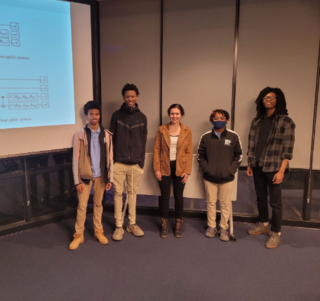
Irma Avdic leading the next generation of quantum scientists in her Quantum Computing Club! The Quantum Computing Club was a four-week workshop on quantum computing fundamentals for the Hyde Park Academy High School students in the South Side Chicago area. Two weekly 1.5-hour long sessions occurred during regular school hours in the fall of academic 2022/23 year. The students had a chance to learn fundamental quantum computing topics, such as superposition, probability and measurement, and quantum circuits, gain access to IBM’s quantum computing cloud services, run operations on real quantum computers, play quantum games, and advance their programming skills.
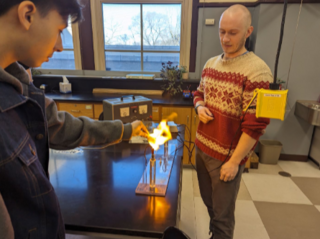
Sam Warren “igniting” scientific curiosity in local Chicago high school students in his weekly Modern Materials and Technology course! MMT is a weekly high school course led by UChicago Grad students. The course covers advanced topics such as topology, spectroscopy, electrical engineering and so much more!